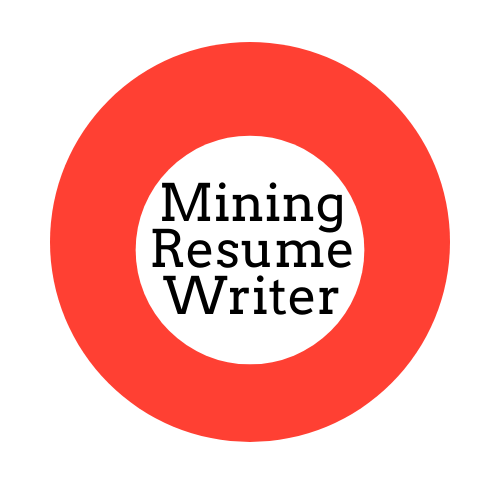A Guide to Mining Jobs in Queensland
Queensland, often referred to as the Sunshine State, isn’t just known for its pristine beaches and vibrant cities but is also a major hub for mining in Australia. From coal to minerals, the state is rich with natural resources, presenting an array of job opportunities for both novices and experts.
Top 10 Mining Companies in Queensland
Here’s a look at the top mining companies in Queensland, the primary resources they extract, and their approximate workforce:
| Company | Primary Resource | Approx. No. of Employees |
| BHP Mitsubishi Alliance (BMA) | Coking coal | 10,000+ |
| Glencore | Coal, copper, zinc | 8,650+ |
| Anglo American | Metallurgical coal | 6,500+ |
| Peabody Energy | Thermal and coking coal | 3,500+ |
| Yancoal Australia | Metallurgical coal | 2,500+ |
| Evolution Mining | Gold | 1,500+ |
| New Hope Group | Thermal coal | 1,200+ |
| Oz Minerals | Copper, gold | 1,000+ |
| South32 | Metallurgical coal, manganese | 950+ |
| Stanmore Coal | Coking and thermal coal | 650+ |
(Note: The numbers mentioned are approximate and can vary. It’s always good to check the latest annual reports or company websites for the most recent figures.)
Opportunities Galore: Entry-Level and Tradespersons
Entry-Level Positions
Queensland’s mining industry is always on the lookout for fresh talent. Many mining companies offer graduate programs, traineeships, or apprenticeships to help those new to the industry gain hands-on experience.
Tradespersons
For individuals with technical expertise, Queensland’s mines are a treasure trove of opportunities. Mechanical fitters, electricians, heavy machinery operators, welders, and boilermakers are always in demand. With the state’s vast array of mines, those with trade skills can find ample opportunities to ply and further hone their craft.
The Future of Coal Mining in Queensland
Coal mining has been a bedrock of Queensland’s economy and employment landscape. However, with the global shift towards cleaner energy solutions and the gradual decline in demand for coal, there’s an air of uncertainty over its long-term prospects in the state.
While thermal coal (used for electricity generation) faces steeper challenges, there’s still robust demand for metallurgical coal (used in steel production), with Queensland being a key global supplier. Yet, as the world intensifies its fight against climate change, even metallurgical coal might see a decline in demand as alternative steelmaking methods are explored.
It’s probable that while coal mining will remain a significant industry for Queensland in the coming decade, diversification into other minerals and resources will be crucial. The state’s mining sector may also witness a rise in the extraction of minerals used in battery technology, like lithium, as the demand for electric vehicles and renewable energy storage solutions increases.
Essential Clearances and Qualifications for Queensland Mines
If you’re considering a career in Queensland’s mining sector, it’s crucial to be aware of certain clearances and qualifications that can boost your employability and ensure safety compliance.
Standard 11 Induction Training (S11)
This is the basic introductory course that provides knowledge about safety and emergency response procedures, legislations relevant to mining in Queensland, and hazard management. Typically, an individual seeking employment in the mines might fund this course themselves, but in some cases, employers who have already selected you for a role might reimburse or pay for the course.
Coal Board Medical:
Before starting work in a Queensland mine, you’ll need to pass a Coal Board Medical examination. This medical test ensures you’re fit to work in a mining environment. The responsibility for this fee can vary. Some employers will cover the cost once they’ve decided to hire you, but if you’re looking to make your resume more appealing upfront, you might decide to undergo and fund the test yourself.
Mining Supervisor’s Course (S1, S2, S3)
If you’re eyeing a supervisory role, this course is a must. It equips you with the skills to manage a team and ensures that operations comply with safety standards. Often, if you’re already employed and your employer wishes for you to move into a supervisory position, they will cover the cost of this training.
Mine Machinery Tickets
For roles that involve operating heavy machinery, specific tickets validating your ability to handle particular equipment are crucial. Typically, if you’re being employed for a specific role requiring these skills, the employer will provide and fund any necessary training. However, if you already have the ticket, it’s an added advantage on your resume.
Who Foots the Bill: Employee or Employer?
Generally, for clearances and qualifications that are mandatory for a specific role, the employer will often cover the cost or reimburse the employee. However, for certifications that are not strictly necessary but enhance an applicant’s employability, prospective employees might consider investing in them to stand out in the competitive job market. Always research and communicate transparently with potential employers about who will cover any associated costs.
Summary
Queensland isn’t just about work. Living in mining towns or FIFO hubs provides an opportunity to explore the state’s diverse landscapes, from rainforests and reefs to the outback’s rugged beauty. Moreover, Queensland’s mining communities are tight-knit, offering a unique camaraderie that often translates into lifelong friendships.
If you’re eager to break into Queensland’s mining sector, consider investing in a professional resume. Our mining resume writing service is tailored to help you land your dream Job in this competitive industry.
Mining Resume Writer can Help
Contact us today and find out more about how MINING RESUME WRITER can help you.

